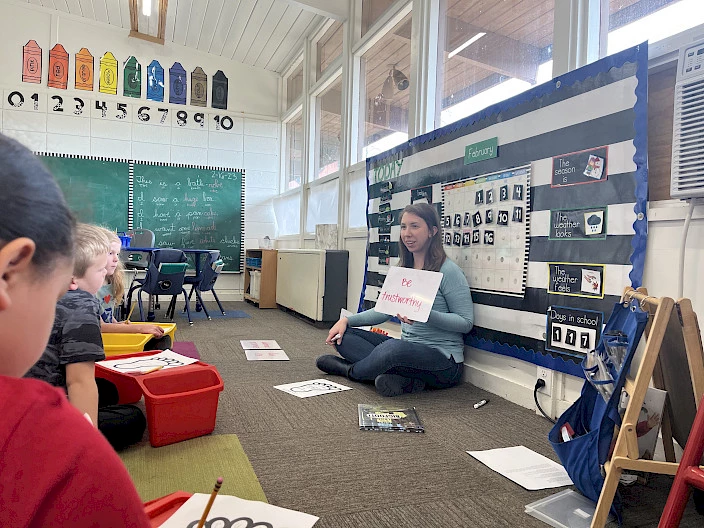Why is Speech Therapy Important for School-Age Children?
Written By Alicia Patillo, M.S.,CCC-SLP

Oftentimes, people think of speech therapy as something children need when they are just learning to speak or communicate. Yet, speech therapy encompasses the development of important parts of language and communication used throughout a child’s development, including school-age children.
Speech therapy at ACCESS for young, schoolage clients focuses on early reading skills and reading comprehension skills, building vocabulary knowledge, sentence development, decreasing stuttering, producing sounds correctly, social skills, and even feeding skills. Students who attend ACCESS greatly benefit from speech therapy, depending on their areas of needs, to help them both academically and to build lasting friendships with peers. Did you know that students with neurotypical vocabulary development require up to 17 exposures to a word before they can independently use that word? Students with a language disorder require two to three times that exposure!
For students at the ACCESS Academy, speech therapy is an integral part of ACCESS’s unique curriculum. ACCESS uses a model of “pre-teach, teach, review” to maximize a student’s potential. Students learn vocabulary and facts in speech therapy prior to learning information in the classroom, providing them with the repetition and engagement necessary to build their knowledge. Students also participate in weekly taste tests and whole group pragmatic language groups to enhance their knowledge and experiences. The classroom pragmatic language group focuses on a monthly character word to teach appropriate social interactions among peers and in the community.
Classroom expectations for any student would include showing respect, trying one’s best, listening and following directions, and participating in classroom discussions. Through therapy, we break these down into functional steps to help students achieve their greatest potential in the classroom setting. In addition to learning functional vocabulary to participate in classroom discussions, students learn appropriate ways to provide this information to others. Students practice listening skills by accessing previously taught information from therapy, raising their hand to indicate they know an answer, waiting to be called upon, and then using functional language to clearly explain their response.
Many students from area schools also attend ACCESS for outpatient therapy. Individualized speech therapy allows direct teaching of very specific areas of needs so these students can reach their full potential at their area school. ACCESS outpatient therapy is unique in that we can provide individualized tasks to address a student’s difficulties, provide ample opportunities for practice, and carry over skills from the school setting into more natural settings. Many times, students receive speech therapy within their school to address their needs. However, parents choose to also utilize ACCESS outpatient therapy services for additional support, practice, and guidance on how to best serve the need of their student.
In my 13 years of practicing speech therapy, I have learned that building a student’s selfconfidence is the single most important step to making progress. The reason I love being a speech therapist is the opportunity to lead students to know they can do anything they choose, and then teach them the building blocks and steps to achieve their goals. Whether it means they dream to be a teacher when they grow up, make lasting friendships now, or experience success instead of failure, I get to be a part of helping them experience a full life.
The most gratifying part of my job is watching students confidently believe in themselves and know that they can accomplish hard things. Sometimes, an 8-year-old is not ready to think about what happens after they finish school. However, they are ready to think about how they can be a good friend to others or succeed at school. These are steps to achieving much bigger goals. ACCESS parents have reached out many times to share how their student is confidently using new skills and the sense of pride their student receives from these accomplishments. It is an honor to get to encourage them to dream of big things for their life.